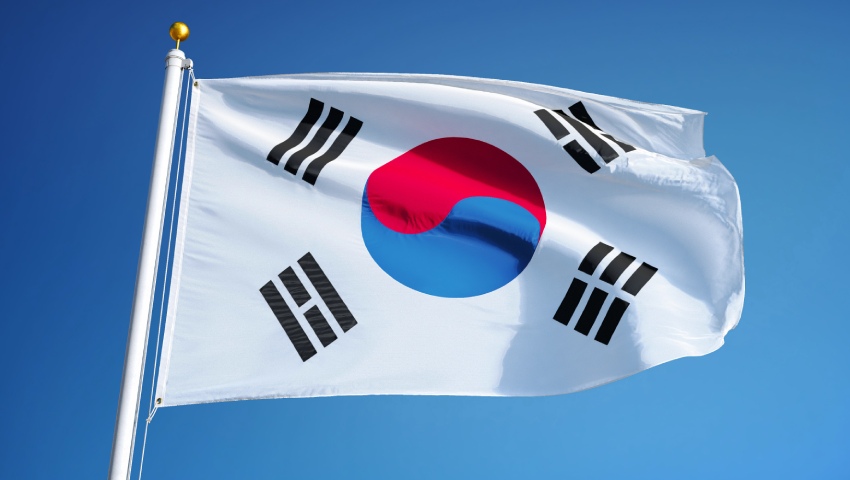The multifaceted benefits of South Korea’s participation in “minilateral” forums.
Peter K. Lee, research fellow at the United States Studies Centre, University of Sydney, explains why Seoul should shed its ambivalence to ‘minilateral’ forums (small multinational political groupings) like the Quad.
In a piece originally published on the Sejong Institute's Korea on Point, Lee notes that the region has been shaped by the US-led Indo-Pacific strategy, focused on developing a “latticework of strong and mutually reinforcing coalitions”.
This strategy has sought to revitalise the Quad and paved the way for the AUKUS defence technology-sharing agreement.
“These minilateral groupings complement the Biden administration’s efforts to modernise bilateral US alliances and partnerships as well as its own force posture in the region,” he writes.
However, South Korea has been a notable omission from these groupings, despite its shared values, and strong military and economic presence.
This, he adds, has been attributed to Seoul’s fear of provoking an increasingly aggressive Beijing, which continues to compare US-backed minilateral groups in the region to NATO expansion in Europe.
Further, Lee adds, the threat posed by North Korea and joint US-South Korean efforts to counter the regime, has “limited interest in regional security issues”.
“In fact, even groupings crucial to the defence of South Korea such as the United Nations Command have been the subject of domestic controversy,” Lee writes.
Compounding this ambivalence is South Korea’s push to strengthen economic and defence self-reliance, with the country favouring national achievement over international cooperation.
But is the tide turning under the leadership of President Yoon Seok-youl?
According to Lee, Yoon’s administration has thus far indicated it is willing to forge closer ties with minilateral groupings.
“Only six weeks since his inauguration, Yoon held his first phone calls with the four Quad leaders, signed up to the Indo-Pacific Economic Framework, supported Biden’s Summit for Democracy, promised to craft his own Indo-Pacific Strategy, and attended the NATO Summit alongside other Indo-Pacific allies,” Lee writes.
However, Lee claims President Yoon has sought to ensure this increased regional engagement is not perceived as targeting China.
“Yoon’s vision of Korea as a ‘global pivotal state has instead emphasised Korea’s economic and technological strengths, rather than its military power,” Lee continues.
“He has also focused on dealing with transnational threats such as climate change and pandemics, rather than great power threats.”
According to Lee, Seoul needs to make its intentions clear.
This includes a concerted effort to build diplomatic solidarity and leveraging the resources of partner nations to achieve shared outcomes.
So, what are the benefits of greater regional engagement?
Lee claims South Korea’s cooperation with allied minilateral partnerships could both improve its diplomatic posture and “maximise” regional and global contributions.
Making reference to the Quad, Lee notes opportunities through working groups on health, climate change, infrastructure, cyber security, critical and emerging technologies, space, and maritime domain awareness.
“Korea could contribute funding and technical expertise to all of them, especially where they overlap with Korea’s own priorities, such as renewable energy and climate change,” he explains.
“Furthermore, one of the Quad’s newest working groups is on space, including sharing satellite data for environmental protection and collaboration on space research.
“Korea’s recent launch of its Nuri KSLV-II opens opportunities for minilateral cooperation beyond just the US-led Artemis Accords.”
Additionally, South Korea could tap into technology sharing arrangements under AUKUS, beyond Australia’s acquisition of nuclear-powered submarines.
“Often overlooked is that the AUKUS partnership also includes 17 working groups on emerging technologies such as undersea capabilities, quantum technologies, cyber security, and hypersonic missiles,” Lee observes.
“To respond to China’s military build-up, Korea, along with other technologically advanced US allies and partners like Japan, Taiwan, and Singapore could canvass new approaches to ‘federated defence’ procurement in naval surface and subsurface vessels with Australia and Southeast Asia.”
“These are areas where Korea has demonstrated expertise and manufacturing strengths to fill looming capability gaps among allies while similarly benefitting from changing US attitudes towards technology transfer.”
That is one of the key lessons from Australia’s engagement with minilateralism over the past decade and why the revitalised Quad has so far weathered three changes of leadership. Without bipartisan support, other partners will inevitably question the durability of Korea’s commitments.
But in order to produce positive outcomes through greater regional engagement, Seoul must “narrow” its foreign policy divisions.
“Korea’s security and prosperity can no longer be ensured solely by itself or through its bilateral alliance,” Lee adds.
“The Yoon administration has promised ‘strategic clarity’ in responding to US-China competition, a foreign policy guided by the values of liberal democracy and free market economy, and elevating ties with the United States to a ‘global comprehensive strategic alliance’."
Lee concludes: “Rather than being a bystander, Korea has much to contribute and also much to gain by widening its network of trusted friends and partners and working together in like-minded coalitions.”
Get involved with the discussion and let us know your thoughts on Australia’s future role and position in the Indo-Pacific region and what you would like to see from Australia's political leaders in terms of partisan and bipartisan agenda setting in the comments section below, or get in touch with



